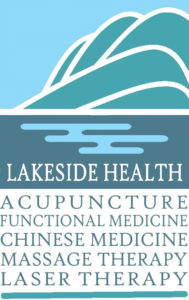Edema is caused by retention of fluids that infiltrate the muscles and skin. It is marked by swelling of the face, head, eyelids, limbs, back or entire body.
Factors that Contribute to Dampness (edema)
Too much raw, cold, sweet mucus forming food such as raw fruits, vegetables, cold food, sprouts and juices.
Intake of highly sweet and mucus forming foods need to be limited – meats, eggs, dairy products, fats such as lard and butter, margarine, oils, oily foods such as nuts and seeds.
Foods Which Dry Dampness
| Alfalfa | Lettuce | White pepper |
| Amaranth | Pumpkin | Raw honey |
| Aduki beans | Scallion | All bitter herbs such as chapparral, chamomile, & pau d’arco |
| Celery | Rye | |
| Corn | Turnip | |
| Kohlrabi |
Raw goat’s milk is the one dairy product that will not usually contribute to damp conditions in the body.
Very Important Supplements
| Free form amino acid complex | Vitamin B complex – 50-100 mg of each major B vitamin twice daily with meals, with extra B6 (pyridoxine), 50 mg 3 times daily |
Important Supplements
| Alfalfa | Calcium | Magnesium |
Helpful Supplements
| Bromelain | Pycnogenol | Vitamin C with Bioflavonoids |
| Garlic | Taurine | Vitamin E |
| Kelp |
Helpful Herbs & Foods
| Alfalfa | Horse chestnut | Marshmellow |
| Barley | Horsetail | Parsley & pau d’arco tea |
| Blue green algae | Juniper | Raw honey |
| Butcher’s broom | Kidney beans | Scallions |
| Carp | Legumes | Seaweeds |
| Chicken | Lettuce | Soybeans |
| Clam | Nuts & seeds | Uva Ursi |
| Corn | Peas | Vinegar |
| Cornsilk | Pineapple | Watemelon |
| Dandelion root | Pumpkin | Zucchini |
| Fava beans | Pork liver | |
| Fruit & Rind | Rosehips | |
| Grape | Lobelia (not on an ongoing basis) | |
| Hawthorn berries |
Congee is a rice soup that contains extra ingredients that have healing properties. To make Aduki Bean Congee, make a thin porridge of a handful of rice simmered in 5-6 times the amount of water. Cook the rice and water in a covered pot 4-6 hours on warm, or use the lowest flame possible, or a crockpot. This congee is a diuretic.
Recommendations
- Eat a diet that is high in fiber.
- For protein, eat eggs, broiled white fish, and broiled skinless chicken or turkey. Consume small amounts of buttermilk, cottage cheese, kefir and low fat yogurt.
- Use kelp to supply needed minerals.
- Avoid alcohol, animal protein, beef, caffeine, chocolate, dairy products (except those listed above) dried shellfish, fried foods, gravies, olives, pickles, salt, soy sauce, tobacco, white flour and white sugar.
- If you have swelling in the legs and feet, sit with your feet up as often as you can. Wear support hose for swelling in the legs.
- Exercise daily and take hot baths or saunas twice a week.
- Avoid stress.
In general, the following are suggestions to prevent edema:
- Don’t eat food that is refined or highly processed, rotten, stale, parasite infested or chemically treated
- Do not include too many ingredients in a meal
- Avoid late night eating
- Avoid overeating
- Eat moderate amounts of complex carbohydrates (grains, vegetables, legumes)



